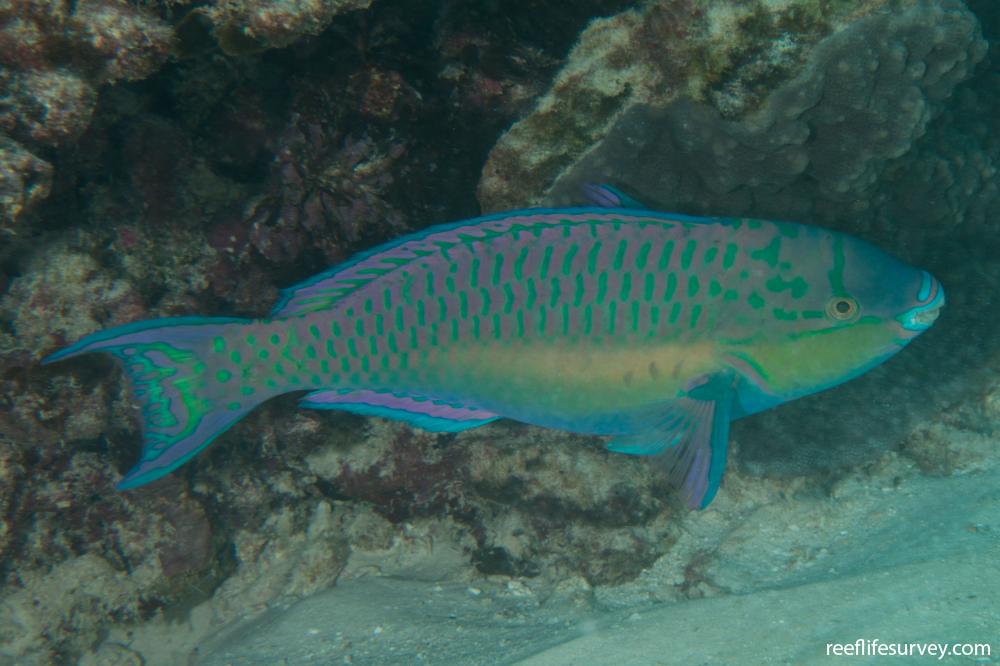Scarus chameleon
Chameleon parrotfishSimilar Species
Same Genus
Distribution
Temperate Australasia, Tropical Indo-Pacific
Description
Highly variable in appearance and often difficult to identify, despite being common. The male is recognisable by the peach coloured streak on the side, from above the pectoral fin backwards. This can be white on males in dark form, which they can rapidly change to (see s images of the same male from WA, Australia). Females also highly variable, but usually with dark scale margins on the side and back, and often white undersides. Lighter stripes can be 'switched' on or off. Yellow form pictured from Bali is not typical. Females often best identified by presence of males, or by body shape when present with similar females of the also common Scarus rivulatus.
Information
Max Size: 31 cm
Sea Temperature Range: 19.1-30.6°C
Depth: 3-30 m
Habitat Generalization Index: 20.83
Also referred to as the SGI (Species Generalisation Index), this describes the habitat niche breadth of the species. Species with values less than 15 are found in a relatively narrow range of reef habitat types (specialists), while those over 25 may be found on most hard substrates within their range (generalists). Learn more here.
Conservation and Rarity
IUCN Status: Least Concern
Occurrence: Frequent (19.9% of sites)
Occurrence describes how often the species is found on surveys within its distribution. It is calculated as the % of reef sites surveyed by RLS divers across all the ecoregions in which the species has been observed
Abundance: Few (5 per transect)
Abundance is calculated as the average number of individuals recorded per RLS transect, where present.
Edit by: RD Stuart-Smith, GJ Edgar, AJ Green, IV Shaw. 2015. Tropical Marine Fishes of Australia. Reed New Holland






















































